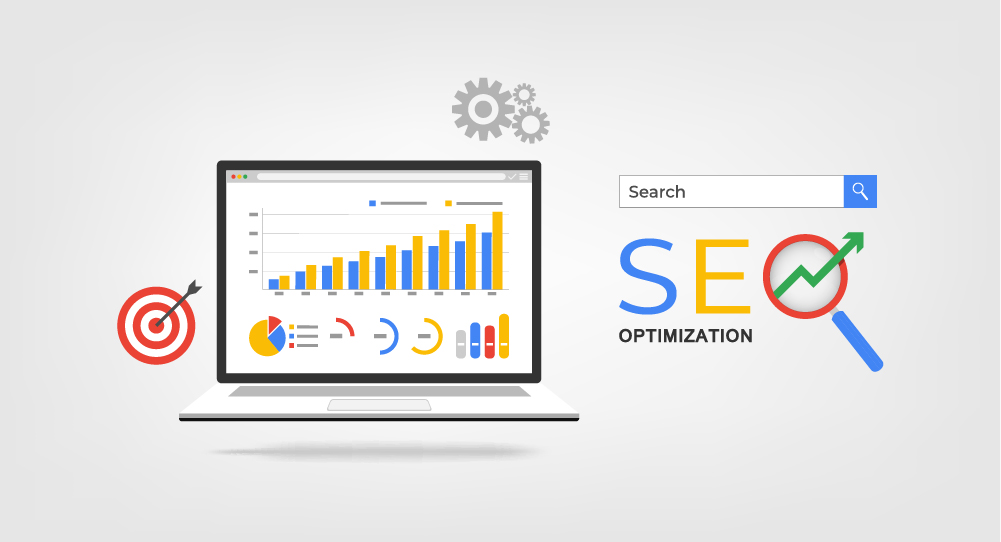
Google Ads optimization tools help companies and marketers get the most out of their Google Ads (formerly known as AdWords) campaigns. The Google Ads optimization score allows you to rapidly examine the health of your Google AdWords account and determine how efficient your Google Ads management is according to Google’s guidelines.
Your score includes specific recommendations for improving your optimization score, such as reading a summary of things you can do to enhance your account. But here’s a question that every Google AdWords expert likes to answer: Should you follow all of Google’s AdWords optimization guidelines? That’s not the case.
Those who don’t have the time to assess individual ad campaigns or analyse the impact of advised modifications can rely on the Google AdWords optimization algorithm. A Google AdWords management specialist, on the other hand, can explain why this isn’t the greatest strategy.
This blog article will help you learn more about Google Ads and the benefits of using Google AdWords management services. Read on to learn how to monitor your Google Ads optimization score, how to use tips to enhance your account, and why hiring a Google Ads firm for professional Google Ads services is the best option.
What do you understand about Google Ads Optimization Score?
The Google Ads optimization score goes from 0% to 100%, with specific recommendations to help you enhance your optimization score. A score of 100 indicates that you have maximised the potential of your AdWords Google account based on all currently accessible suggestions, whilst a score of 0 indicates that your account needs immediate attention through Google Ads services. How can I see my optimization score? Whether looking from the manager account, account, or individual campaign level, Google Ads suggestions are comparable.
Image Source: support.google.com
What is the calculation for Google optimization score?
Machine learning and the Google Ads optimization checklist are used to calculate your optimization score. Your total Google Optimization score varies based on where you look and as the algorithm learns more about your account through real-time data, such as how your SEO position changes. Following Google AdWords SEO recommended practises, as well as your AdWords Google account settings and performance history, influence your optimization score.
Your optimization score begins at 100 percent and lowers as AdWords optimization tips are weighted with an increase in your optimization score. The stronger the impact, the higher the comparable recommendation score.
Difference between Quality score and Optimization score in Google AdWords
The Google Ads Quality Score is a tool that compares the quality of your ads to those of your rivals. Questions like: How is the optimization score linked to the Google Ads Quality Score tool? come up a lot when people are talking about optimization and Google Ads optimization in general.. Is there a method to boost the Quality Score? And how can you use it to increase your Quality Score?
First and foremost, according to Google, your optimization score is not factored into your Quality Score or Ad Rank. Instead, it’s a “more comprehensive perspective of the health of your account.” Nonetheless, both the optimization score and the Google Ads Quality Score have the same goal: to give actionable recommendations for improving your campaign’s performance. Quality Score is something that a Google AdWords business may assist you with. Advanced Google Ads optimization and how to boost your Quality Score as well as your overall optimization score.
How to take advantage of Google Ads Optimization Score
Your optimization score has numerous advantages, but in order to use them correctly, you must study further into your recommendations before adopting or discarding them. It’s critical to work with a Google AdWords agency to maximise your Google Ads optimization score.
Here are five expert-approved strategies for getting the best out of your optimization score:
- Take A Look At The Bigger Picture
For two reasons, a large number of suggestions will almost certainly increase your ad expenditure. For starters, increased ad spend benefits the Google Ads platform. Second, adwords optimization is essentially an investment that boosts your profits – but only if your campaign budget increase is handled properly by a Google Ads expert.
Entrusting the administration of your Google Ads campaign to a Google Ads business will help you feel more assured about receiving a decent return on your ad investment (RoAS). They’ll be able to tell you if Google’s suggestion is worth the extra ad cost.
- Understanding Optimization Score
Your optimization score is account-specific; there is no baseline for a good optimization score, thus it’s not a suitable comparing metric. The difference between your score and 100 percent is what is important. For example, if your score is 80 percent, you’re missing out on around 20 percent of Google Ads optimization chances.
Based on Google data and forecasts, your score highlights areas for improvement and proposed modifications. It doesn’t tell how effective your campaigns are, and raising your optimization score doesn’t guarantee better results.
- Carefully apply or reject recommendations
We advise against using all of the recommendations and underline that Google recommendations are useful for campaign management at the highest level. Even so, an experienced Google Ads specialist should double-check that they are in line with a certain plan and will not increase Google Ads expenditure excessively.
Almost every account, for example, will have a suggestion for adding wide match keywords – typically hundreds at a time. This optimization is recommended by Google software in order for advertising to appear for long-tail searches. Although optimization score recommendations will only be applied in bulk, a strategist must examine each one individually because many will be useless, overlap with current keywords, or result in a high cost with no or few leads.
This just underscores the need of using Google AdWords to manage your optimization score suggestions based on your own company objectives.
- Prioritize the Highest-Impact Recommendations.
Every tip is given a number depending on how much it should increase your performance over time, according to the optimization score. The activity with the highest expected impact is the advice that will raise your score the most (without guarantees). This may be Google recognising apparent flaws that need to be fixed or statistics showing you where your best development opportunities are.
Because they’re still settling in, fresher accounts tend to implement suggestions more liberally. A more established account needs a careful review by a Google AdWords expert, because even if a suggestion has the greatest project impact, it may not be appropriate for your company. A Google AdWords firm is used to dealing with more complicated accounts involving a lot more money.
- Examine each suggestion and save it for later.
Most of the time, you’ll be in the centre — you’re not ready to accept or reject a tip, but you may still learn something from it. The ideal use of the optimization score, according to a competent Google AdWords firm, is to propose activities you should do and make out-of-the-box ideas. So, before you apply or ignore your suggestions, make a list of the most important and essential information you uncover.
Do you need a Google Ads Management Expert?
Keep in mind that your optimization score and suggested modifications are dependent on your account’s performance and real-world data, as well as changes to the Google Ads platform. They steer you in the correct path, even if they are based on guesses and offer no assurances. These insights are used by your Google AdWords firm to provide cost-effective Google Ads services.
Final Thoughts
All of this raises the question of whether achieving a perfect optimization score is a good or beneficial objective.
We don’t think so. The average optimization score for most of our accounts is around 80%, which seems reasonable to me. You could certainly attempt to raise it. However, you’ll almost certainly blow a hole in your marketing budget in the process.
That isn’t to imply Google’s optimization score isn’t useful. It did provide us with some helpful recommendations and out-of-the-box ideas, which was fantastic. It could also be useful for auditing a new account with a low optimization score. It might be a quick and painless technique to pinpoint the most evident issues.
What’s the most important takeaway here?
Always be sceptical of anything that Google advises. Put it to the test.
Because, while Google’s artificial intelligence may be advanced, but it has no knowledge of you or your company.
